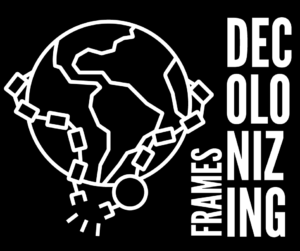The inaugural edition of DECOLONIZING FRAMES has been held on July 12, 2025 in Turin (Italy)
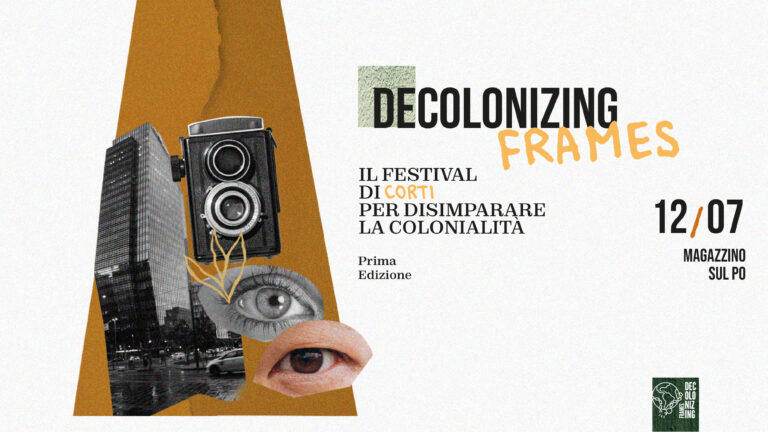
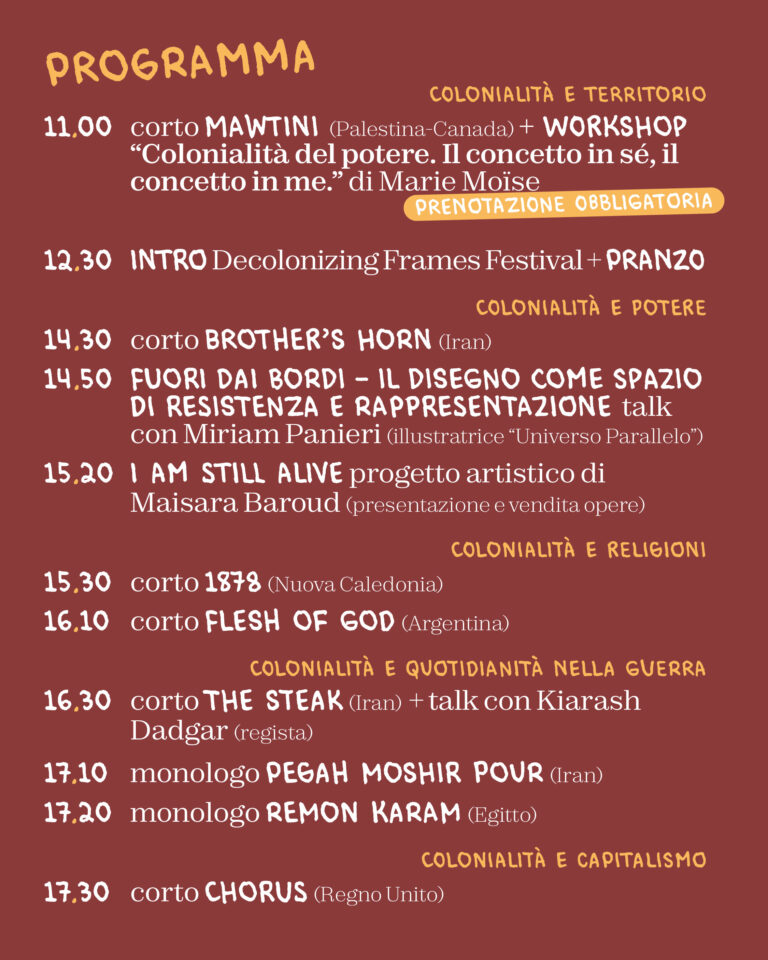
The first edition of Decolonizing Frames was not just an event — it was a day of shared presence, a space gently carved out for listening, witnessing, and imagining otherwise.
Short films unfolded like open windows, offering glimpses into other geographies, memories, and futures. They spoke in languages both familiar and forgotten, expanding the frame of what we see and how we see it.
Workshops, talks, and collective moments led by activists, writers, and artists did not aim to fill the space, but to hold it — inviting dialogue where words were needed, and silence where words were not.
This inaugural gathering became a soft architecture of exchange — a meeting of bodies, stories, and sensibilities in search of ways to unlearn, reframe, and dream anew.
Decolonizing Frames begins here, with the awareness that images are never neutral, and that reimagining them is a form of resistance — and care.
MORE ABOUT THE SELECTED SHORT FILMS
Mawtini - My homeland / Fateema Al-Hamaydeh Miller
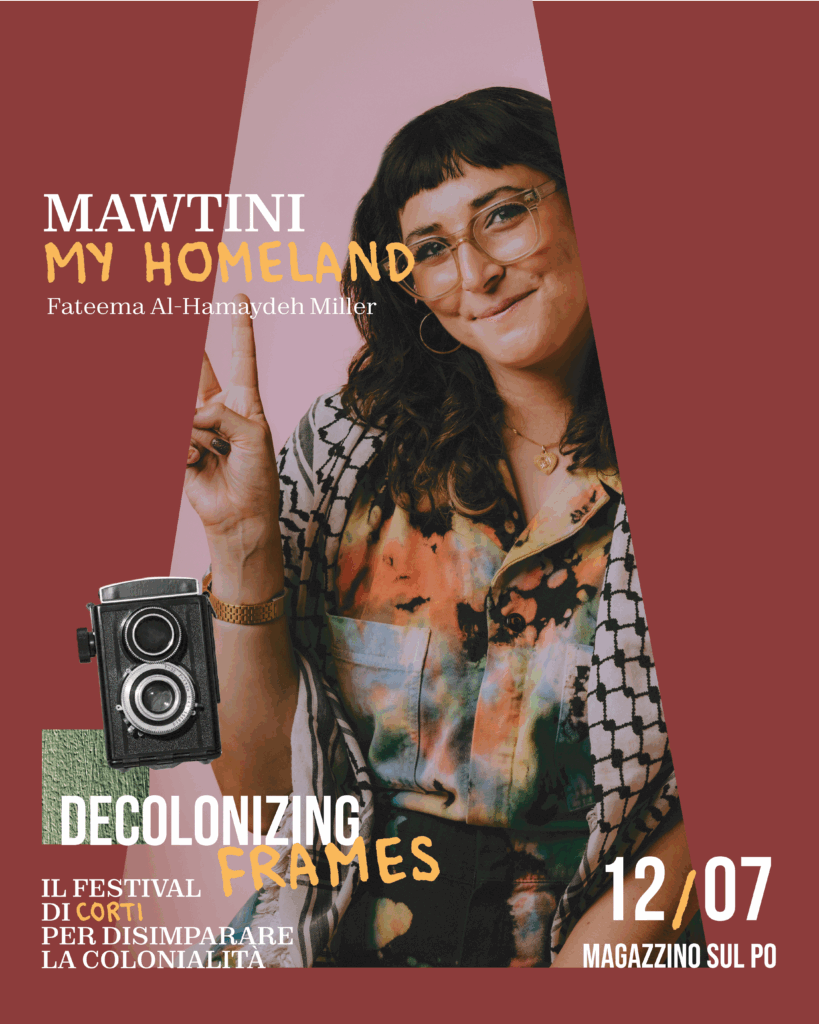
Mawtini – My Homeland, by Fateema Al-Hamaydeh Miller, is the short film that opens Decolonizing Frames.
“What does it mean to be from stolen land living on stolen land?” – asks Fateema.
Mawtini tells the story of Nawal, a young Palestinian woman marked by grief, whose path intertwines with Tanya, an elder and guardian of Indigenous land and memory. Amid grey buildings and the rules of those who govern without listening, the two women fight with quiet determination to cultivate a harvest that becomes hope, rebellion, and healing. A silent yet powerful act of decolonization at the heart of the everyday.
Mawtini was awarded Best Short Film at the first edition of Decolonizing Frames.
brother's horn / Majid Asadi
Brother’s Horn, by Iranian director Majid Asadi, stages the game of power.
The rule is simple: the older brother always wins. He shapes the clay just as he shapes his younger sibling’s life.
With striking visual force, the short film pulls us into the heart of the tension: hegemony, and the fragile line between belonging and domination.
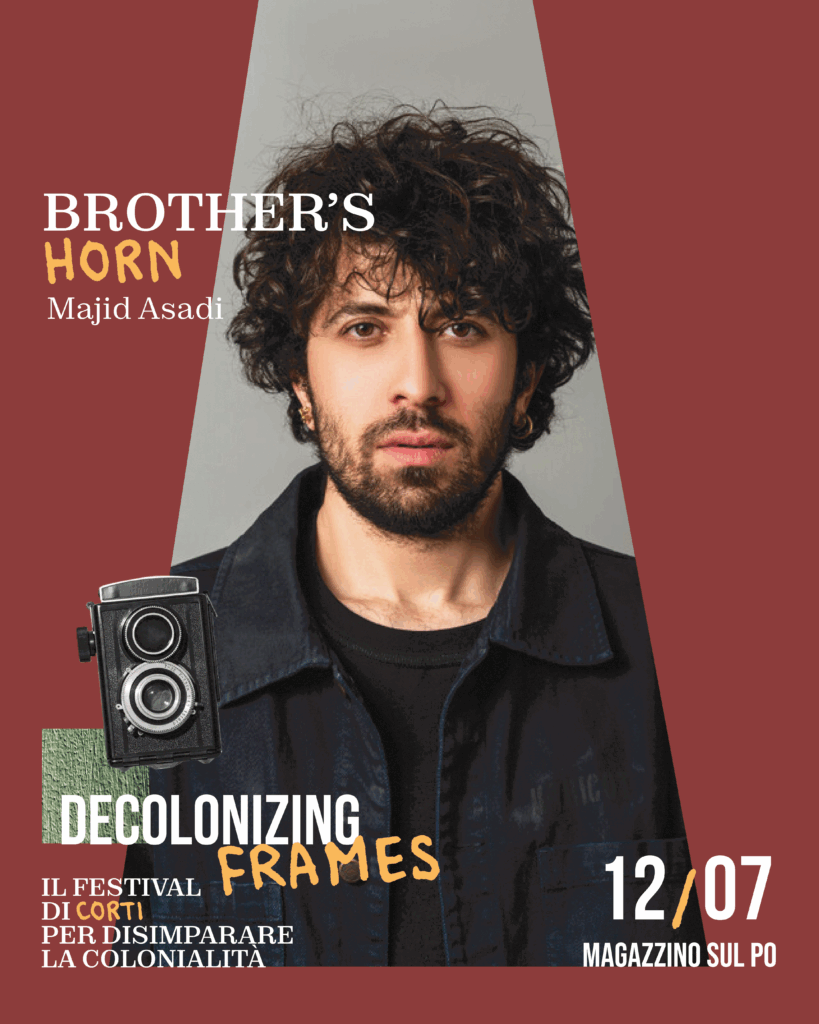
1878 / aurélia Raoull
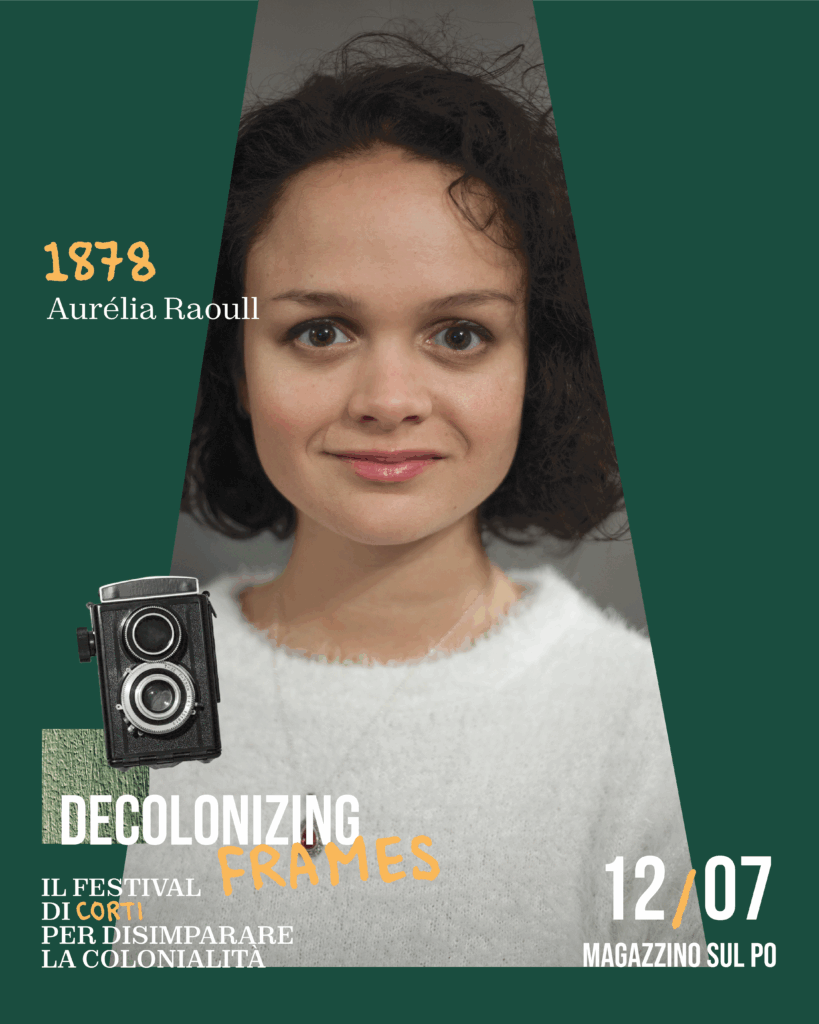
Aurélia Raoull takes us into the heart of New Caledonia, to the moment when European missionaries arrive—marking the beginning of a long and painful wound.
Through the eyes of a young Kanak girl, we witness one of the precise moments when colonial history takes root—when coloniality seeps into language, culture, and tradition.
Yet the mother’s song endures. A simple tune that survives as an act of resistance. A whisper that carries across centuries.
1878 is a fragment of memory.
Carne de dios / Patricio Plaza
In the mountains of Mexico, during the time of evangelization, a Spanish friar struck by a mysterious illness is taken by his disciple to the hut of an elderly healer.
Carne de Dios, by director Patricio Plaza, offers a hallucinatory glimpse into the clash between two worlds: colonial power and ancestral medicine, faith and spirit, control and transformation.
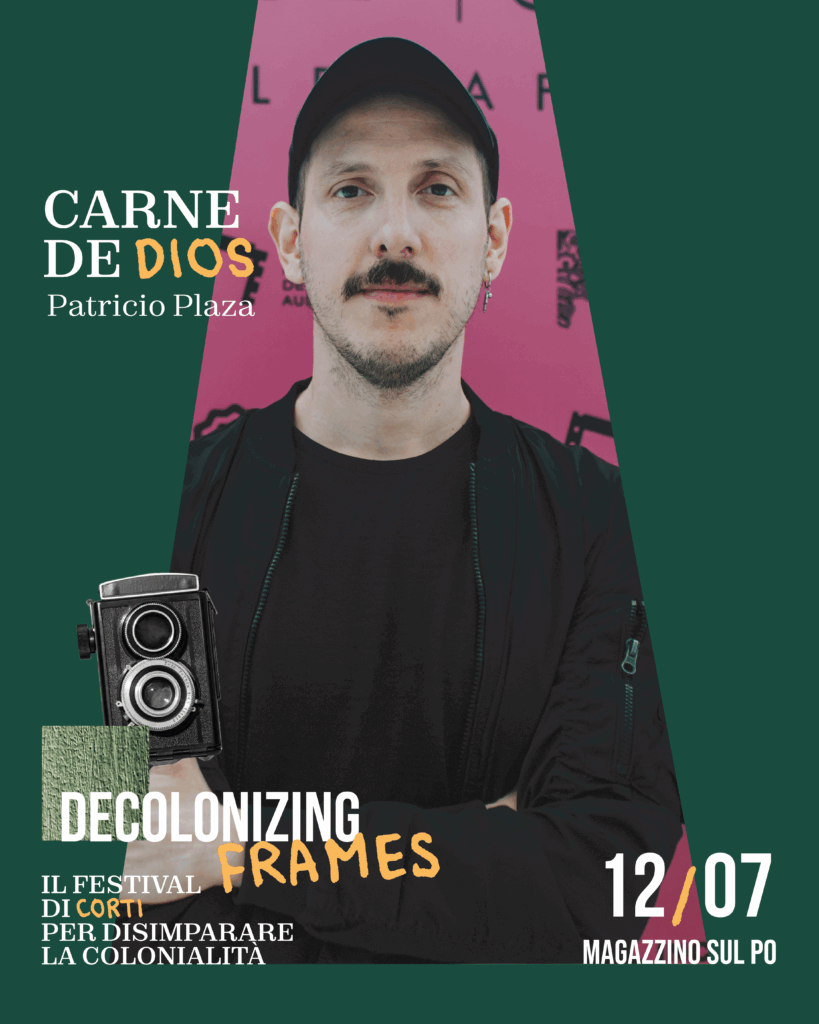
The Steak / Kiarash Dadgar
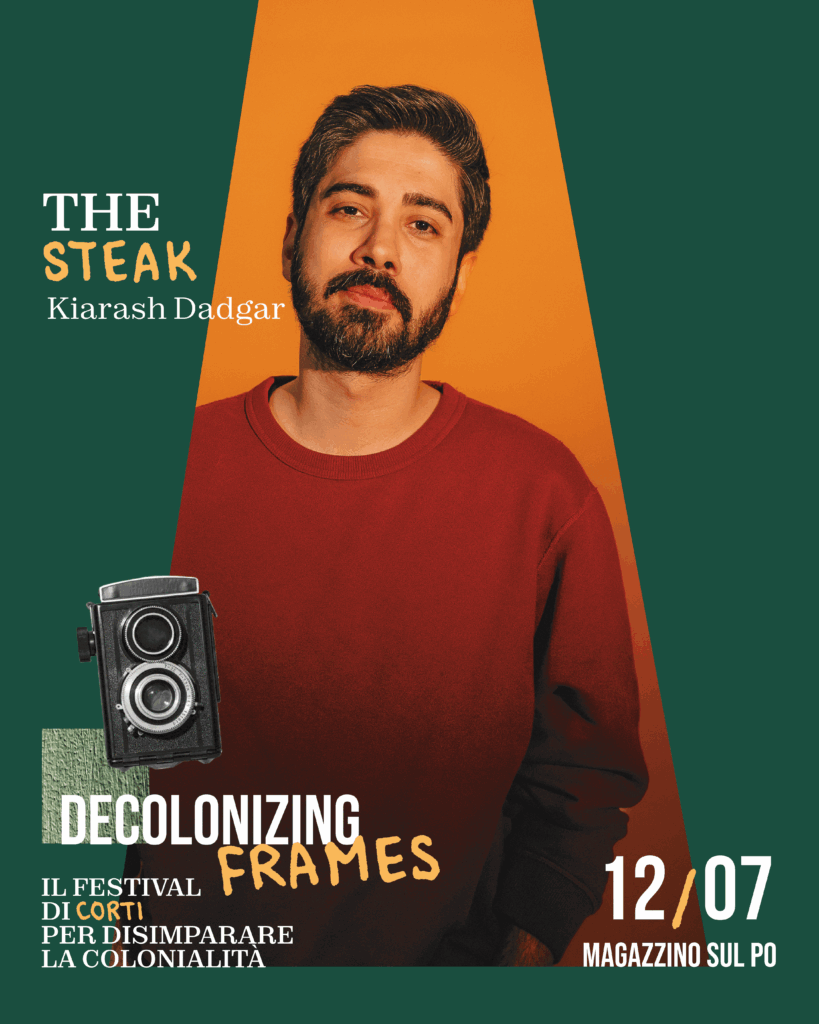
“What can occur within 7 minutes?”
Iranian director Kiarash Dadgar poses this question without uttering a single word.
By removing dialogue, his short film The Steak invites us to interpret the story through the gaze—and to shift our own in the process.
The Steak received a Special Mention for Best Direction and Sound Design at Decolonizing Frames.
Chorus / Alexia Liu
“You know what? I quit.”
Chorus, the animated short by Alexia Liu, is born from a personal experience: an exhausting job, days that blur together, and a fatigue that becomes the norm.
“One day, my friend and colleague asked me: ‘Alex, how tired are we before we are really tired?’”
Through humor and satire, Chorus transforms the pain of burnout into a deeply human narrative.
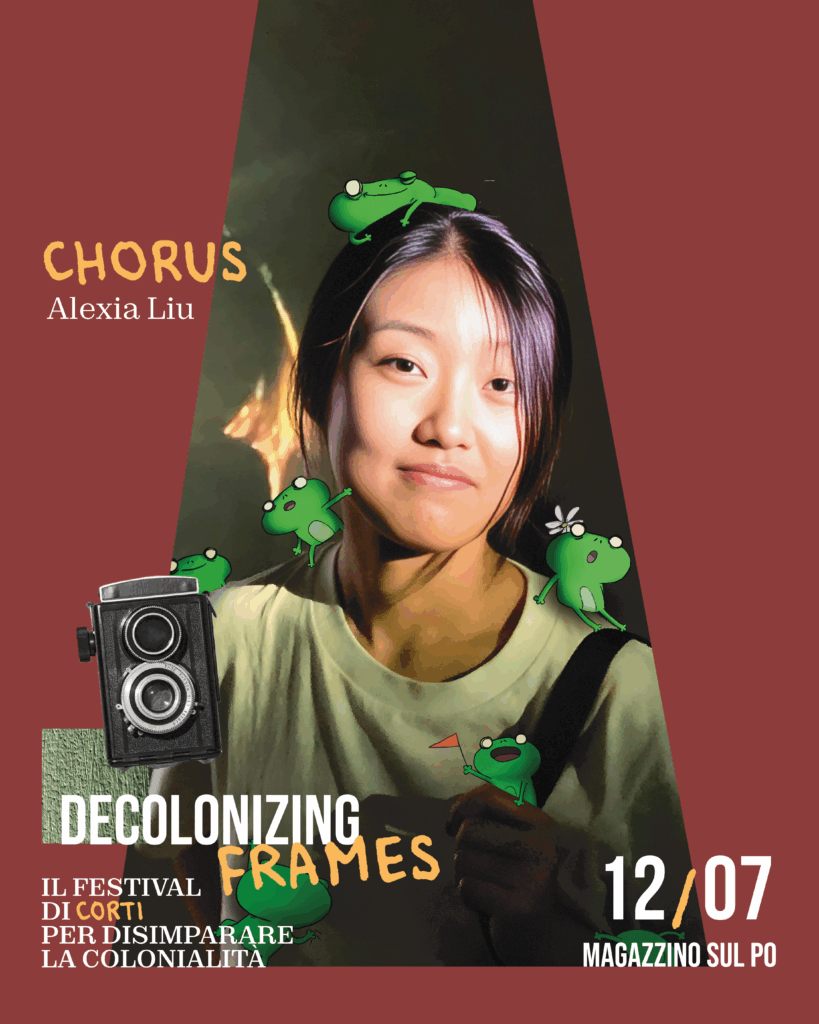
DF second edition is coming!
Newsletter
Inserisci la tua email per restare aggiornatə su Decolonizing Frames Festival e le prossime iniziative!
Grazie per esserti iscrittə!
Ci sentiamo - e vediamo! - molto presto.
